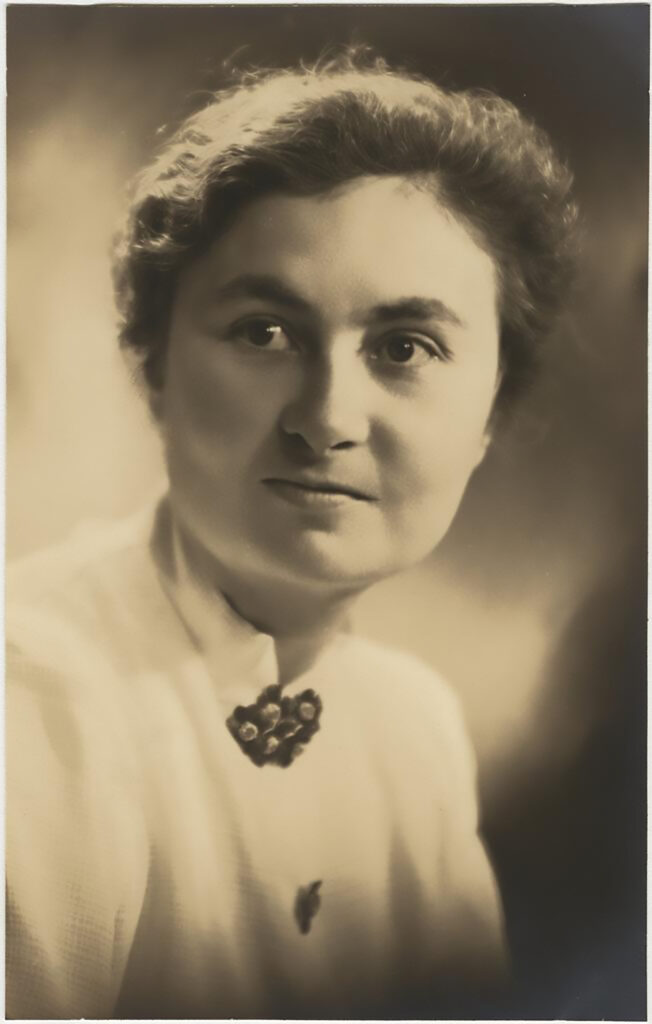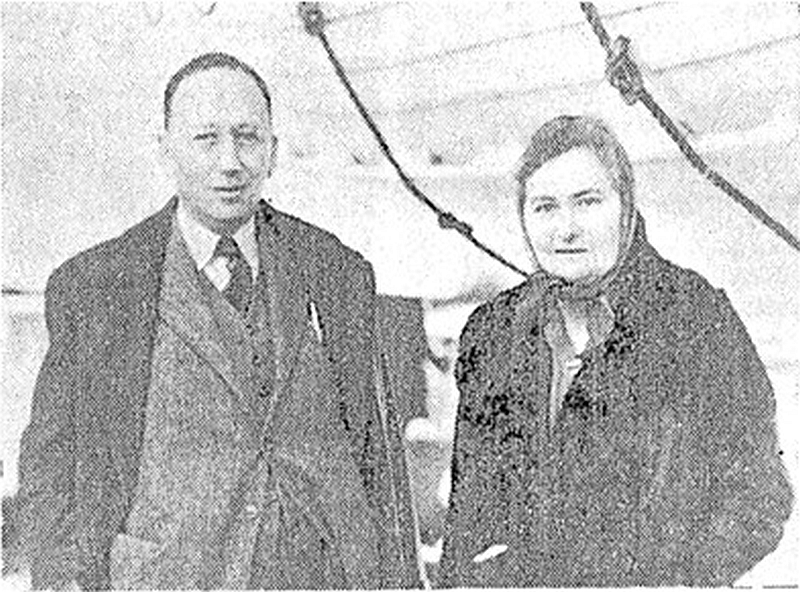Marianne Angermann and Franz Bielschowsky: Two German Antifascists in Republican Madrid
Marianne Angermann, a young German biochemist, joined a Madrid lab in late 1935 to work with her compatriot Franz Bielschowsky, a Jewish refugee who’d been there since 1933. When the war broke out the following year, both decided stay in Spain and serve the Republican war effort as medical personnel. Marianne’s letters to her parents, newly translated, shed light on their story.
“The scientific level of Spanish medicine,” declared physician and researcher Prof. Carlos Jiménez Diaz proudly in 1935, “is superior to that of other nations.” He based this opinion on “Spain’s ancient culture, on its profound drive for knowledge, on the serenity which this country, unaffected by World War, has given to science.”
In that auspicious and assured era of Spain’s Second Republic, Prof. Díaz was about to open the Instituto de investigaciónes médicas in Madrid, within the University City in the northwestern suburb of Moncloa (soon to be the front line of defence against Franco’s efforts to take the city). Díaz’s vision, unique in Spain at that time, was for a research institute integrated with a public hospital, so that clinical practice and teaching could be combined with laboratory research. A friend and ally in this project was the professor of physiology, Dr Juan Negrín, who would later serve as the last President of the Second Republic.
Prof. Díaz staffed his state-of-the-art facility with researchers from his own country and from Germany, where he had studied in the 1920s. By the early ‘30s, world-leading German medical researchers could be readily persuaded to work overseas, since those of Jewish descent had been forced to leave their posts under Nazi statutes. One of those involuntary émigrés, who became head of the Instituto’s biochemistry department, was Dr. Franz Bielschowsky. Another was a young biochemist named Dr. Marianne Angermann.
Although Angermann was not Jewish, as a confirmed anti-fascist she chose to exchange a comfortable life in Berlin for scientific research within the most progressive intellectual environment in Europe. In a series of vivid and colorful letters to her family, Marianne described her delight at the new workplace she shared with Franz. “The Institute is unbelievably beautiful. Everyone has their own large laboratory, larger than my big beloved one in Düsseldorf… the floor is made from a special sort of rubber—soft and light as a feather to walk on.” She quickly learned enough Spanish to appreciate her new home in Republican Madrid, noting novelties such as “a black man spreading out a sack on the street” to cool freshly roasted coffee beans.
By early 1936 the young researcher’s enthusiasm was becoming tempered with an awareness of the challenges facing the fragile Republic. “Occasionally two people shoot each other. But no-one here takes that tragically. One only reads about it in the paper.” These offhand observations were at first simply asides to her general delight in her new circumstances. “How good I have it here compared with the dreadful loneliness of Berlin! Almost every day someone drives me home. Here they don’t let a lady pay for a tram.”
Later that year, the political situation deteriorated further, but Marianne remained enthralled with her surroundings, even in Madrid’s notorious winter conditions. “It just rains and rains and everything is one big swamp,” she wrote. A massive strike by construction workers in June, revealing the growing rift between anarchist and other factions of the Republican government, delayed completion of the Institute buildings but did not otherwise affect her work. Even when she reported that “everything is on strike, partly the workers, partly the employers,” she did so in light-hearted terms—perhaps to reassure her parents in Berlin. “If you should get unsettling news,” she told them in July, after the tit-for-tat assassinations of a socialist military officer and a right-wing politician, “then I can only say that we see practically no sign of it and life goes on.”
The civil war broke out three days after Marianne wrote that letter, and even this inveterate optimist was forced to admit that her work and home life would be profoundly affected. By then, however, her own country was firmly under Nazi rule and her prospects there were similarly bleak.
From November 1936, in the face of the Nationalist advance on the capital, most of the university faculty shifted to Valencia, but she and Franz chose to remain in Madrid and support the idealistic, embattled Republic. Both spent the war working at Military Hospital No. 6 in the northern suburb of Chamartín de la Rosa: Franz as a physician with the Republican Army’s medical service, and Marianne as medical laboratory chemist. Ground-breaking work in psychiatry was carried out at this hospital during the war. Its first director was Dr. Amador Pereira Redondo who, in 1937, went on to become Chief Medical Officer of the Tank Brigade.
The two expatriate Germans, who married in Madrid in July 1938, refused all opportunities to leave Spain—even when their own lives were endangered. In a letter written to her mother ten years later, Marianne recalled: “that bright morning in Madrid when terrified women ran from one hospital to another during the night, searching for their children… The evening before we had seen how German aeroplanes, Junkers, bombed their part of the city. They were testing things out on Spanish soil! Hatred of the Germans? No, disgust was the best expression back then.” Despite the severe privations and dangers of wartime, Marianne looked back warmly on those times. “I wouldn’t have missed any of it,” she wrote, “as difficult as it often was.”
By early 1939, the laboratory she had described in such glowing terms was in ruins. (It was eventually rebuilt nearby in the Franco era. The Hospital Universitario Fundación Jiménez Díaz still operates as a private teaching and research hospital.) The couple’s situation had become critical. They could expect retribution from the victorious Nationalists and could not rely on the German diplomatic mission in Spain for assistance, as Nazi-era legislation would by this stage probably have stripped them of their status as German citizens.
With great difficulty and resourcefulness, they obtained Spanish passports enabling them to travel temporarily to Marseilles in March 1939. Just before their visas expired, they received permission to enter the UK for “a visit of six months, not for employment.” Nevertheless, they both found work at the University of Sheffield, where they spent the Second World War. In 1948, the couple travelled on to New Zealand, where Franz had been offered directorship of the Cancer Research Laboratory at Otago University. They spent the rest of their lives there, carrying out world-leading cancer research.
Marianne’s many letters from Madrid and her subsequent addresses were copied by her parents in archaic Gothic script, difficult for even native German-speakers to read today. Yet staff in the German programme at Otago University’s Department of Languages and Cultures have recently transcribed and translated these letters into English, adding meticulous scholarly annotations to explain references to people, places, events and political developments. The text is augmented by many helpful photos and other images. The first two journals of Marianne’s letters, covering the period from 1935 to early 1939, have been made freely available online as “Briefe einer Antifaschistin” at otagogermanstudies.otago.ac.nz/ogs/issue/archive.
The following are extracts from Marianne’s letters from Madrid to her parents in Germany:
17 May 1936
On Wednesday there was the grand viewing of the Institute by the press… Don Carlos [Dr Jiménez Díaz], who’s honoured me in the last week with more scientific discussions in the last week than in all the previous months, now only speaks Spanish with me and that’s quite good because he has an excellent understanding of German. If he doesn’t say we need to speak German, then that’s the best indication that I’m able to express myself in this new language. Like a child perhaps, but at least comprehensibly.
21 June 1936
If you are at one of these ministries the clerk doesn’t just slap you on the shoulders, he also does it to the first secretary of the minister if he happens to be pleased about something… It’s quite an undisciplined life but it works and works quite well, as we can see. If the tram drivers are thirsty then they leave the streetcar standing a while and go and get a drink and make up for the delay again by driving faster…
11 July 1937
We haven’t eaten sliced meat since the war began – how good it tasted!… Sardines and a piece of bread make a magnificent meal. I think that thanks to such times as these stomachs will be getting smaller. Anyway, I often think it would be impossible to have a normal meal without getting stomach aches afterwards. On the 9 we’d been married a whole year.
Mark Derby’s biography of Doug Jolly, a New Zealand surgeon who served with distinction in the Spanish Civil War, will be published in June 2024.














